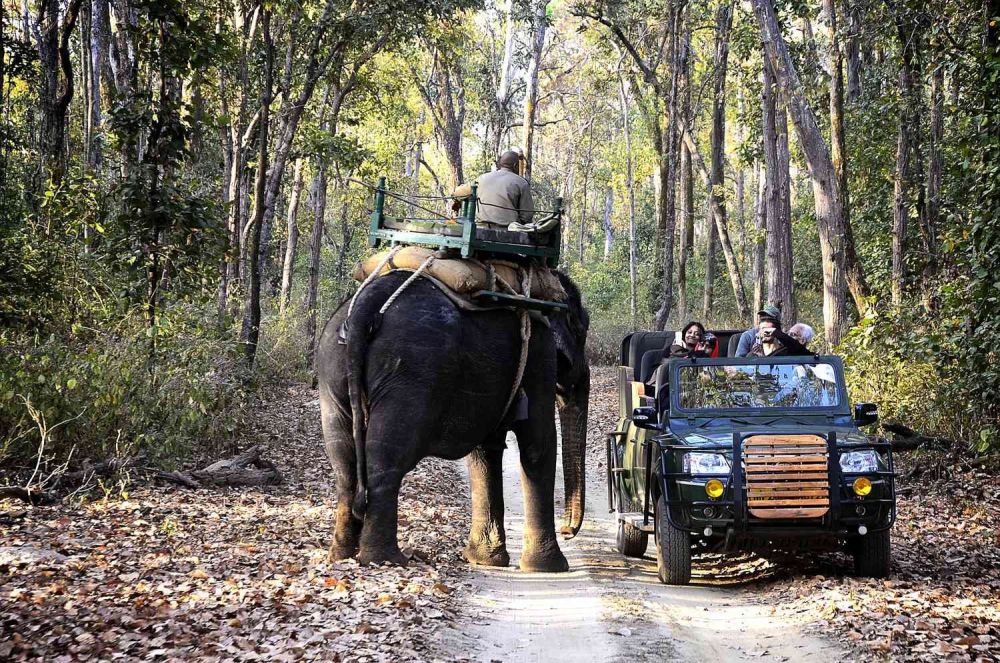

Kanha National Park, nestled in the heart of India in the state of Madhya Pradesh, boasts a long and storied connection with wildlife conservation. The park's history dates back to 1933 when Kanha area was divided into two sanctuaries, Hallon and Banjar, of 250 and 300 square kilometers respectively. However, it was not until 1955 that Kanha National Park was established as we know it today, with a core area of 940 square kilometers.
The park has earned the distinction of being one of the well-maintained National Parks in Asia and an integral part of the Project Tiger, which was launched in 1973 with the aim of safeguarding the population of the Indian tiger. Kanha is also recognized for its research and conservation programs for several endangered species, including the hard-ground Barasingha (Swamp Deer), which was near extinction but revived due to dedicated conservation efforts.
The allure of Kanha's wildlife began attracting tourists and wildlife enthusiasts not long after its founding. Over the years, the influx of visitors has grown, turning Kanha into a prominent tourism destination for those eager to witness the majesty of Indian wildlife in their natural habitat.
Tourist facilities and infrastructure have gradually developed, with the establishment of various forest lodges, resorts, and tourist activities like the Elephant Safari, which offer a closer look at the park's biodiversity. Efforts to balance tourism with conservation have led to the regulation of safari vehicles and trained guides to ensure minimal disturbance to wildlife.
One of the major attractions in Kanha National Park is the Elephant Safari Point. Safaris on elephants offer an unrivaled experience for wildlife enthusiasts, allowing them to traverse the dense forests and grasslands in search of majestic creatures like the Bengal tiger.
The Elephant Safari is managed by the Forest Department, and it provides an intimate opportunity to witness wildlife from a safe and respectful distance. The elephants used for safaris are well-trained and accustomed to their role in helping visitors explore the park.
Kanha National Park keeps up with the evolving trends in tourism to offer the best experience to its visitors. Eco-tourism and sustainability are now central themes, with steps being taken to minimize the ecological footprint of safaris and lodging. Innovative measures, such as the use of electric vehicles for safaris and solar energy to power facilities, are increasingly common.
In recent years, there's been a focus on improving the quality of guiding services with more emphasis on knowledge and storytelling to enrich the safari experience. Luxury accommodation options are also on the rise, catering to those who wish to combine wilderness adventures with comfort.
Travelers looking to embark on an Elephant Safari should book their rides in advance, as the number of safaris is limited to ensure minimal disturbance to wildlife. The best times for these safaris are early morning or late afternoon when the animals are most active.
The park is typically open for visitors from the 15th of October to the 30th of June every year, as the monsoon season makes the terrain inaccessible during the remaining months.
In conclusion, Kanha National Park and its Elephant Safari Point continue to offer one of the most incredible wildlife experiences in India. The park’s dedication to sustainable tourism ensures that this treasure will be preserved for future generations of nature enthusiasts.